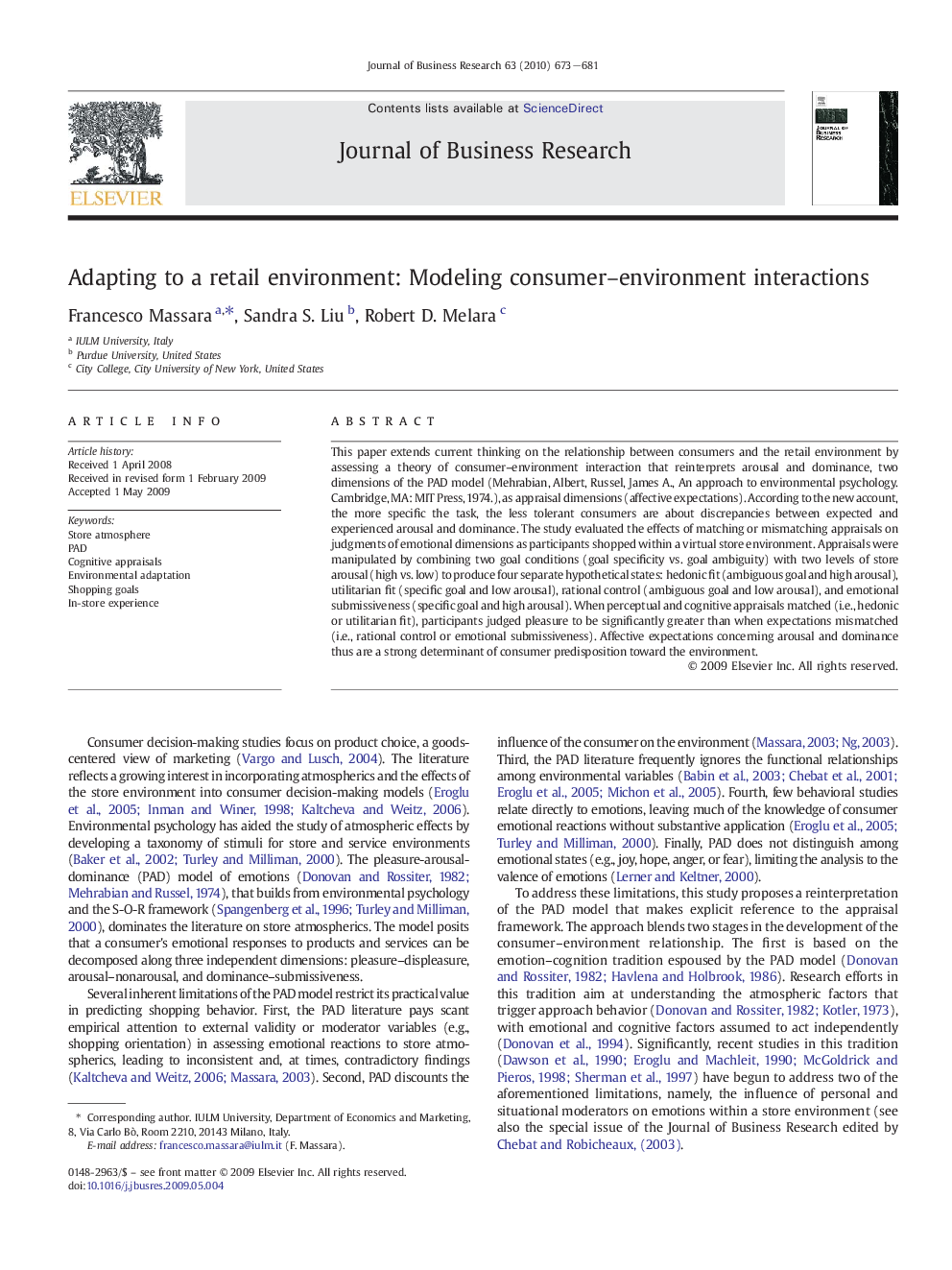| کد مقاله | کد نشریه | سال انتشار | مقاله انگلیسی | نسخه تمام متن |
|---|---|---|---|---|
| 1018632 | 940357 | 2010 | 9 صفحه PDF | دانلود رایگان |

This paper extends current thinking on the relationship between consumers and the retail environment by assessing a theory of consumer–environment interaction that reinterprets arousal and dominance, two dimensions of the PAD model (Mehrabian, Albert, Russel, James A., An approach to environmental psychology. Cambridge, MA: MIT Press, 1974.), as appraisal dimensions (affective expectations). According to the new account, the more specific the task, the less tolerant consumers are about discrepancies between expected and experienced arousal and dominance. The study evaluated the effects of matching or mismatching appraisals on judgments of emotional dimensions as participants shopped within a virtual store environment. Appraisals were manipulated by combining two goal conditions (goal specificity vs. goal ambiguity) with two levels of store arousal (high vs. low) to produce four separate hypothetical states: hedonic fit (ambiguous goal and high arousal), utilitarian fit (specific goal and low arousal), rational control (ambiguous goal and low arousal), and emotional submissiveness (specific goal and high arousal). When perceptual and cognitive appraisals matched (i.e., hedonic or utilitarian fit), participants judged pleasure to be significantly greater than when expectations mismatched (i.e., rational control or emotional submissiveness). Affective expectations concerning arousal and dominance thus are a strong determinant of consumer predisposition toward the environment.
Journal: Journal of Business Research - Volume 63, Issue 7, July 2010, Pages 673–681